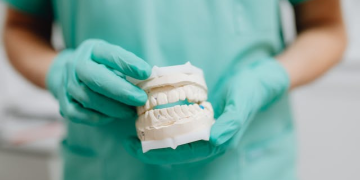The presence of a substance addiction invaded every aspect of many people’s lives. A person who has successfully recovered from an addiction spends a lot of time learning what caused them to become addicted and how to prevent it from happening again.
There are a number of myths and misconceptions surrounding addiction, which keep many who struggle from telling others about what they’re experiencing. Among those myths and misconceptions is the social stigma surrounding addiction. For fear of being criticized or abandoned, people hesitate to tell their families or friends.
During a person’s ongoing recovery from addiction, people can best help them by standing by their side.
It is difficult to recover from addiction on one’s own, even after treatment. Understanding what an addict goes through is crucial for the people who care for them. The family, friends, and spouses of the person in recovery can work together to hold them accountable to their sobriety plan.
The things people in recovery wish their loved ones know about
Here are some things that recovering addicts wish they could let their loved ones know how they struggled with addiction:
1. You must support them now and always.
Every year, millions of people are in need of treatment for addiction but are not receiving it. In order to understand the addict’s side of the story, we need to shift our perspective and see the world from their lenses. Learn more about facility centers, drugs, their usage, and the complications attached to them so you can empathize and offer help when it is most needed.
There is no doubt that addiction is a widespread problem that goes largely unrecognized. A lifelong recovery journey is easier than you once thought for your loved one with your encouragement and support.
- Supporting a loved one while they are recovering.
The following are a few ways you can help someone recover:
- Be a role model.
Creating positive habits like eating healthy foods and exercising can help you maintain recovery.
- Set up an environment free of substances.
Your home should be free of temptations and triggers.
- Pay attention to what they have to say.
It is not always necessary for people recovering from having someone to talk to.
- Attend support groups together.
Knowing there are people on their side helps motivate the person in recovery.
- Wait patiently.
Recovery requires commitment, discipline, and time.
- Be Aware Of Relapse Signs.
There’s a possibility of relapse, and you need to know what to watch out for. In the event that a person in recovery falls back into old habits, get help right away.
2. Getting addicted wasn’t their choice.
A person doesn’t always choose to become an addict. There are many people who become addicted to drugs prescribed by doctors to treat medical conditions. Their brain changes over time as a result of prescription drugs. If they need to feel “normal” to get through the day, they might continue to take the pills. The person may begin craving higher doses of the prescribed substance before they realize they have developed an addiction.
In other cases, addiction doesn’t necessarily develop over time. Even if someone experiments with a substance just once, it can ignite addiction. The most common types of drugs that cause addiction are methamphetamine and hallucinogenic drugs. One dose of these substances is enough to start a destructive pattern of usage.
For more interesting articles, Please Visit answerques.com
3. Anyone can develop an addiction at any time.
People with addictions have been portrayed negatively in television and films over the years. Regardless of their background, age, or financial status, anybody can become addicted to alcohol or drugs.
Some people are more likely to become addicted due to a number of contributing factors. People at a young age who use drugs or consume alcohol are more likely to develop an addiction later in life. It is also more likely for a person to become addicted if he or she has a family member who has a history of substance abuse.
4. They may have had more than one reason for starting to abuse drugs or alcohol.
It’s rare for a person to become addicted to alcohol or drugs for just one reason. Sometimes, a person uses substances to suppress anxiety or stress. People who abuse substances may be driven by issues in their family relationships or mental illnesses. As a matter of fact, many people who participate in rehab for addiction are treated for depressive disorders or post-traumatic stress disorders (PTSD) as well.
In today’s rehabs, people have access to treatment for all kinds of root causes of their substance abuse. Treatment centers focus on treating the whole person rather than merely treating the addiction. In this way, patients have a greater chance of recovering fully.
5. When they’re rebuilding their future, you must not bring up their past.
A person must make a difficult decision when deciding whether to go to rehab. Someone suffering from an addiction needs a lot of strength and self-realization to accomplish change.
It is counterproductive for someone in recovery to dwell on the past and relive past mistakes. They’re in a very vulnerable state of mind during this time, so it’s best for them to stay focused on the healthy, new life they’re building for themselves. It is important to encourage the person in recovery every step of the way and be there for them whenever they need it.
6. They never intended to hurt or disappoint their loved ones.
Most people are not aware of the serious consequences of using drugs or alcohol until they start relying on them. Most of the time, their intention of using substances is to feel better or different, but never hurt others.
A person’s addiction can affect all of their family members, friends, and relationships. These people may develop explosive temperaments, erratic behaviors, or other negative behavior that affects people around them. Support groups and family therapy are often an integral part of recovery in rehab to help repair relationships that have been damaged by addiction.
7. Despite their addiction, they remained “them.”
Having an addiction is a disease that causes a person’s body to undergo physical and mental turmoil. It disturbs the normal hierarchy of needs and desires in a person’s brain. People become more concerned with obtaining and using drugs or alcohol than with the things they once enjoyed doing.
The person you loved remained the same despite the addiction. The only difference was that they were sick and needed your help to overcome their addiction. The true self of an individual begins to shine through during and after treatment.
Conclusion
Addiction is a serious problem that needs to be treated. You or someone you know should seek help as soon as possible. Learn how the treatment makes a recovery easier than ever before by contacting a treatment provider.
The impact of addiction treatment on some people was similar to hitting rock bottom. Rather, their decision to enter recovery marked the beginning of a new chapter in their lives.


























































